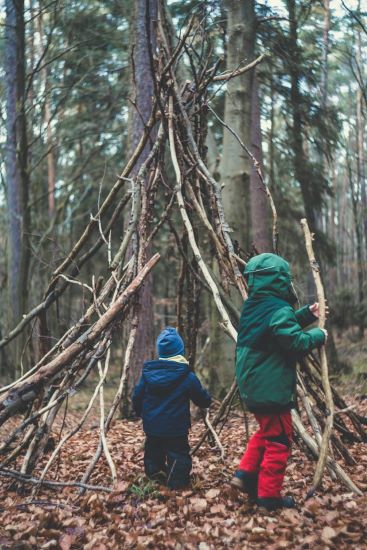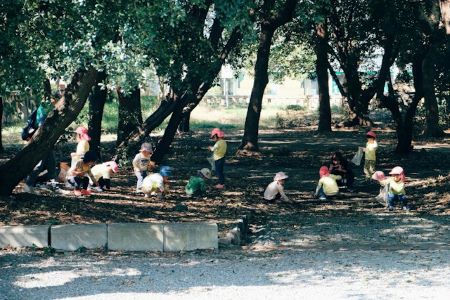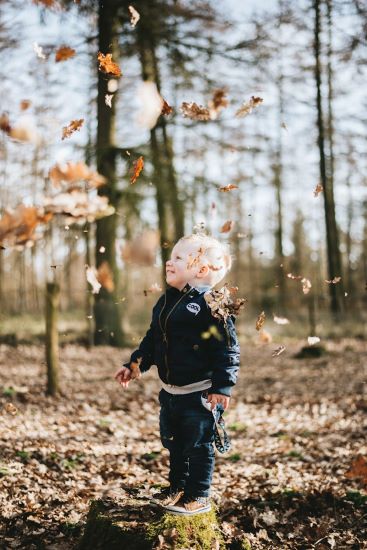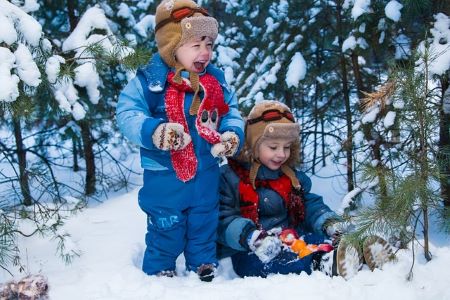Forest schools originated in the Scandinavian countries in the 1950s, and since the mid-1990s, they have been increasingly prevalent worldwide.
“Forest School is an inspirational process, that offers ALL learners regular opportunities to achieve and develop confidence and self-esteem through hands-on learning experiences in a woodland or natural environment with trees.“
FSA 2013

Forest School Follows the Six Principles of Forest School by:
- Offering a long-term process with frequent and regular sessions. Forest School is a journey. Regular sessions will enable the learner to fully immerse themselves in the spirit of Forest School and embark on a wonderful journey of exploration and play.
- Offering sessions that take place in an outdoor environment with trees to develop, nurture, and support the relationship between participants and nature.
- Promoting the holistic development of participants across all domains. Forest School supports and nurtures creativity, confidence, resilience, and independence.
- Offering plenty of opportunities to explore supported risky play. Forest School recognises the importance of risky play and how it nurtures all areas of development.
- Sessions are run by a qualified Forest School Leader, maintaining and developing professional practice.
- All activities and experiences aim to create and develop a sense of community within Forest School.

A recent report from Natural England on children and the natural environment addresses the important changes in trends in which children engage with the natural environment over the years. The key findings in the research supported in the studies are that:
- Children spend a lot less time outdoors than adults did, even if adults recognise the benefits of outdoor play. Parents would like their children to experience the outdoors more but have anxiety and fears around the idea of the outdoor environment.
- The streets aren’t a child’s place anymore, but more of an adult-oriented space.
- The indoor space is much more child-centered than outdoor, with children choosing indoor activities over outdoor ones.
- Children would like more freedom to explore outdoors.
This leads us to the subject of the culture of fear of the modern era. The study shows how adults are aware of the great benefits of nurturing a relationship between children and the natural environment, but at the same time, they are somehow preventing this from happening by being concerned about the risks that this engagement can create.

This is where Forest School comes in. Forest School fully supports development through play by providing child-centered experiences that impact all areas of development. It gives the learner the opportunity to explore and be an active participant in their own learning by guiding the learning rather than directing it. This is supported by applying child development theories such as:
Vygotsky Learning through Play Theory
Vygotsky firmly believes that play is a fundamental need and right for all children, central to their well-being. Learning spontaneously happens in the child by letting the child interact freely with their peers and the environment through play.
He affirms that children learn through play and make sense of the world around them through it. Therefore, it is vital that the adult provides meaningful experiences that further stimulate child-led play. This is done by scaffolding their learning, providing experiences and activities that extend the learning that the child already spontaneously started through play (J. Donohoue, F. Gaynor. 2011).
Developmental Movement Theory
The Developmental Movement Play recognises how early movement can impact child development in all areas. The role of the adult is to provide a rich, resourceful environment to create opportunities to explore physical play.

The use of this theory encourages the stimulation of the vestibular sense and proprioception sense. The stimulation of these two senses benefits other areas of development such as well-being, cognitive, and social development.
Building Learning Power- Claxton 4 Rs Theory
With this theory, Claxton provides practical ideas on how to expand young people’s appetite and capacity for learning. When learners are more confident, they are more likely to learn faster and better and overcome difficulties along the way.
Claxton states that to build better learning power, it is important to provide the learner with experiences that promote and foster the 4 Rs: Resilience, Resourcefulness, Reflectiveness, and Reciprocity
Claxton G. 2002
From all of the above theories, it emerges how crucial the role of the environment is for the learner. Forest School promotes a nurturing relationship with the natural world. Learners are encouraged to learn about the environment and how to respect and support it, as nature is responsible for all the learning opportunities provided. Nature is the teacher.
During Forest School practice, this is encouraged by promoting sustainability practices and exploring concepts such as affordance of materials and spaces, where one thing or space can be used for many different uses rather than having a single use. This is also done by using natural materials and techniques that are environmentally friendly and mindful of the site.

This will instill in the participants a sense of care and connection with nature, promoting a relationship of love and respect. We strive for participants to build a connection with the natural world to create a space where they feel at ease and in connection with nature, ultimately creating a sense of well-being.
This relationship is crucial, as it promotes not only mindfulness but also empathy, spirituality, well-being. It will also cultivate more nature-aware and empathetic individuals, leading to better care for the planet.
Another important aspect is that Forest School takes place in all weather except high winds. Often, some adults are concerned about children being out in the rain.
Growing up hearing that a good day is associated with sunshine might have ingrained that concept much deeper than we think. But while being out in all kinds of weather has its challenges, it also represents so much more than just standing in the rain for our children. It pushes them to become resilient, not being stopped by factors like the weather to get what they want, to learn to go with the flow and the unpredictability of life, and adapt, assess, and reformulate a new plan.

Forest Schools all around the world highly promote deep nature connection and well-being in nature for children and adults while also learning wilderness skills, nature eco-crafting, ropes, knots, and important skills such as collaboration, self-esteem, resilience, resourcefulness, reciprocity, and much more.
It encourages our children to find that connection with the environment and learn about its features and their responsibilities about it. Taking place in all weathers often enough, we are out in the rain, and it’s always great to see how the children pay no attention to it but actually experience the highest enjoyment in it.
Running races in the rain, splashing in puddles, getting messy in the mud kitchen, and so much more. The enjoyment on their little faces always stands as a substantial confirmation of the importance of the type of experience we provide as Forest Schools.

Children are so adaptable and able to see the magic all around us, so a rainy day becomes an opportunity to explore that freedom that they wouldn’t have on a regular basis to splash about.
So let us dance in the sunshine but also in the rain, let us experience that life isn’t only made of picture-perfect sunny days but let us adapt and enjoy whatever the day may bring, from rain to hail all while learning so much in between the trees.
Main – Photo by Annie Spratt on Unsplash




